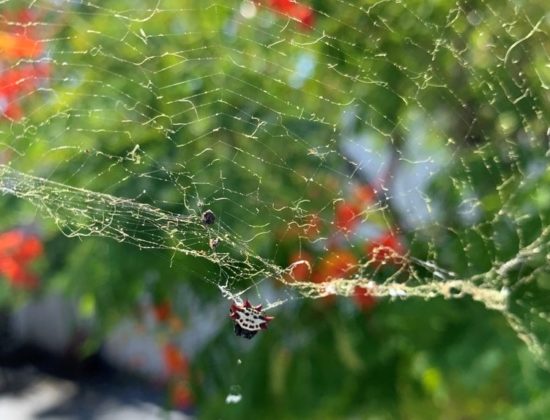|
Getting your Trinity Audio player ready...
|

The staff at Deering Estate helped to celebrate Earth Day (April 22, 2020) with the creative idea of working with the public to identify wildlife from the comfort of their homes and backyards. Using the iNaturalist app, people could post any flora and fauna they saw around their backyards and neighborhoods via a joint project, “DE Backyard BioBlitz.” In support of citizen science, which is the practice of the public participating in their own research, increasing their own scientific knowledge, iNaturalist records a participants’ encounter with an organism at the specific time and place. Once posted, other users or experts, like the Deering Estate staff, can help identify the wildlife. “iNaturalist makes identifying organisms easy by having a “suggestions” option. It takes your uploaded photo and matches it to species in their database. If it cannot recommend a species, then the app suggests genus or families which narrows down what you are looking for. It is very user friendly, especially for beginner naturalists!” said Stephanie Soto, an Interpretive Program Leader at Deering Estate and a user of iNaturalist since 2015. Now with everyone at home due to COVID-19, citizen science is a great way to push scientific involvement.
People from all over participated, having observations in Alabama, Tennessee, and many different cities in Florida. In total, there were 49 participants, 492 observations, and 252 species recorded. Plants were the most frequently identified, followed by insects, birds, reptiles, ray-finned fishes, mammals, arachnids, mollusks, and even fungi! The top five species found were the Brown Anole (Anolis sagrei), the Black-Jack flower (Bidens pilosa), the Northern Mockingbird (Mimus polyglottos), the Spinybacked Orbweaver (Gasteracantha cancriformis), and the Halloween Pennant (Celithemis eponina). The Brown Anole is a lizard native to the Bahamas and Cuba; however, it is highly invasive and has been spotted throughout Florida and other parts of the U.S. The other species named were all native, with the Northern Mockingbird traveling to southern areas of the US in search of warmer weather and our state bird! The Halloween Pennant is a native dragonfly to the East coast and the Spinybacked Orbweaver is an arachnid found all around the western hemisphere.
The staff at Deering Estate also planted a vine in tribute of Earth Day which was donated by their Preserve Manager, Dallas Hazelton. The Hamburger Bean, also known as the Horse-eye Bean (Mucuna sloanei) was planted near the Education Pavilions in the Mango Grove of Deering Estate. These seeds are commonly known as “hamburger sea beans” as they are carried by rivers into the ocean. While contributing to the project themselves, they were also hard at work helping people identify all the curiosities they found, with some help from the iNaturalist app,“what did you see?” suggestions function. “I love iNaturalist because it is a global community with a mutual love for wildlife. There are many experienced naturalists, biologists, you name it, that take time out of their day to help identify organisms,” said Soto. Overall, the BioBlitz was a success with nature fans being able to take a break from all the stress of the pandemic and became more in tuned with Mother Nature from the comfort of their own home. Since COVID-19 quarantine started, the Earth has had a break from pollution which has allowed organisms to venture out and flourish. Make sure to download the iNaturalist app, become a citizen scientist and start identifying species around you today!
Valeria is a freshman at Doral Academy Charter High School. She is currently a Junior Ambassador for Miami Waterkeeper and a Deering Estate intern.







